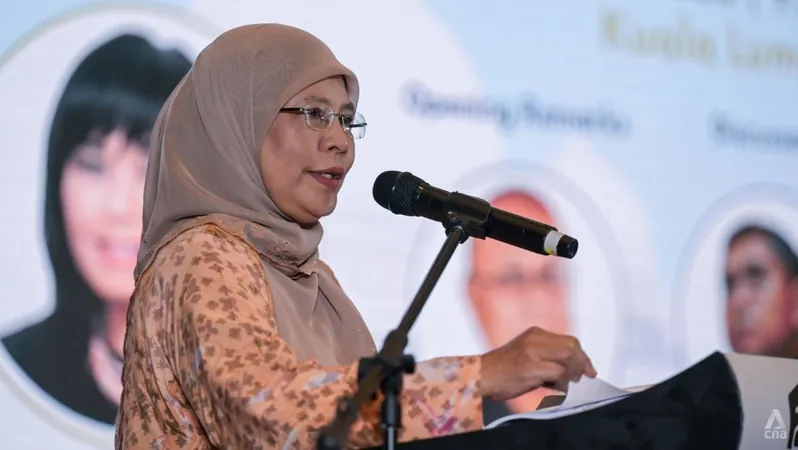
Malaysia's Ex-Chief Justice Reveals Shocking Insights on Delayed Judicial Appointments and 'Transparency Issues'
2025-08-19
Author: Jia
In a candid discussion, Malaysia's former Chief Justice, Tengku Maimun Tuan Mat, addressed the much-debated delay in appointing the nation's top judges, insisting that no one is at fault for the timing. The intricate process, involving Malaysia's Malay rulers, operates on a strict schedule, ensuring transparency, though raised eyebrows remain.
Judiciary in Limbo: What Caused the Delay?
Tengku Maimun, who retired on July 2, expressed her views during a dialogue about constitutional safeguards, shedding light on her recent tenure and the vacant top judiciary posts that had sparked rampant speculation about political interference. The former chief judge stated that the delays were built into the system, with appointments needing the consensus of the Conference of Rulers, which meets only a handful of times each year.
Behind the Secrecy: Calls for Greater Transparency
Despite the behind-the-scenes workings, Tengku Maimun acknowledged a troubling 'transparency problem' surrounding the Judicial Appointments Commission (JAC). The JAC is comprised of judges and eminent legal professionals who vet candidates for judicial roles, but due to a secrecy provision in the JAC Act, its discussions and decisions are often shrouded in mystery.
Recent controversies sparked by leaked meeting minutes hinted at judicial misconduct claims involving former Attorney General Ahmad Terrirudin Salleh, intensifying calls for reform. Tengku Maimun noted that the JAC must uphold specific promotion criteria but emphasized it’s essential to reevaluate the process to ensure clarity and public trust.
Political Influence? The Prime Minister's Role in Judicial Appointments
The discussions took a more contentious turn as Tengku Maimun critiqued the Prime Minister’s role in judicial appointments. She affirmed that while the JAC adheres to constitutional requirements for promotions, the ultimate decision resides with the Prime Minister, casting a shadow over the judges' selections. This raised concerns that the JAC may be perceived as bowing to political pressure.
Future of Judicial Independence in Malaysia?
The crux of reforms may lie in altering the Federal Constitution to ensure judicial independence. Tengku Maimun expressed hope that proposed adjustments to the JAC Act—including the potential removal of the Prime Minister's influence—could restore confidence in the judiciary's integrity. Her comments have sparked a dialogue about the significant impact of political dynamics on judicial independence.
Final Thoughts: The Biggest Threat to Justice?
In a final thought, when asked about the most pressing threat to judicial independence, Tengku Maimun pointed an accusing finger at politicians, a statement that resonated in the hall with laughter and applause. As Malaysia navigates these critical changes, the push for a more transparent and independent judiciary is becoming ever more urgent.




 Brasil (PT)
Brasil (PT)
 Canada (EN)
Canada (EN)
 Chile (ES)
Chile (ES)
 Česko (CS)
Česko (CS)
 대한민국 (KO)
대한민국 (KO)
 España (ES)
España (ES)
 France (FR)
France (FR)
 Hong Kong (EN)
Hong Kong (EN)
 Italia (IT)
Italia (IT)
 日本 (JA)
日本 (JA)
 Magyarország (HU)
Magyarország (HU)
 Norge (NO)
Norge (NO)
 Polska (PL)
Polska (PL)
 Schweiz (DE)
Schweiz (DE)
 Singapore (EN)
Singapore (EN)
 Sverige (SV)
Sverige (SV)
 Suomi (FI)
Suomi (FI)
 Türkiye (TR)
Türkiye (TR)
 الإمارات العربية المتحدة (AR)
الإمارات العربية المتحدة (AR)